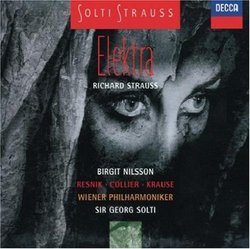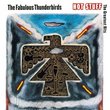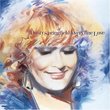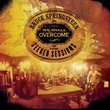| All Artists: Richard [1] Strauss, Georg Solti, Vienna Philharmonic Orchestra, Birgit Nilsson, Gerhard Stolze, Gerhard Unger, Helen Watts, Marie Collier, Regina Resnik, Tom Krause, Tugomir Franc Title: R. Strauss: Elektra Members Wishing: 0 Total Copies: 0 Label: Decca Release Date: 9/10/2002 Album Type: Original recording reissued Genre: Classical Styles: Opera & Classical Vocal, Historical Periods, Modern, 20th, & 21st Century Number of Discs: 2 SwapaCD Credits: 2 UPC: 028941734525 |
Search - Richard [1] Strauss, Georg Solti, Vienna Philharmonic Orchestra :: R. Strauss: Elektra
 | Richard [1] Strauss, Georg Solti, Vienna Philharmonic Orchestra R. Strauss: Elektra Genre: Classical
If ever there was a dysfunctional family, it was the one in this opera, based on a Greek tragedy but deeply imbued with the ideas of Sigmund Freud. The mother Clytemnestra (mezzo-soprano Regina Resnik) and her lover Aegist... more » |
Larger Image |
CD DetailsSynopsis
Amazon.com essential recording If ever there was a dysfunctional family, it was the one in this opera, based on a Greek tragedy but deeply imbued with the ideas of Sigmund Freud. The mother Clytemnestra (mezzo-soprano Regina Resnik) and her lover Aegisthus (tenor Gerhard Stolze) have murdered the father, Agamemnon, on his triumphant return from the Trojan War. They have an excuse: Agamemnon gave his daughter Iphigenia for a human sacrifice. Another daughter, Elektra (soprano Birgit Nilsson), burns for revenge, but as a woman in a patriarchal society, she must use her brother Orestes (baritone Tom Krause) to execute her plan. Nilsson's portrayal is a high point of her career, and the whole brilliant production matches her performance. This is not easy listening, but it puts us in touch with dark realities dangerous to ignore, and the music (after you get used to it, which may take a while) has great power. --Joe McLellan Similar CDsSimilarly Requested CDs
|
CD ReviewsGet this recording if you want complete music! Alexander Z. Damyanovich | Flesherton, Ontario, Canada | 01/04/2002 (5 out of 5 stars) "Ideally, I'd have given this recording 4.5 stars (the thing that bothers me is Marie Collier's howling and crying as Chrysothemis: much as it is indeed called-for in the score, it seems overdone...); since that's not available, let it have the full 5 as it otherwise deserves it. This is particularly so given its presenting the full uncut musical text of the opera (apparently all the other recordings, with the possible exception of the Sawallisch, have the same 6-7 cuts that are usually made with staged performances); in any case, the performances (particularly those of Solti and the Wiener Philharmoniker, as well as of Nilsson and Krause - what power!!!) make this recording an absolute must in any serious classical music collection - especially with any Straussians! People, do your best to get this recording (even if you need to order it from Amazon's UK subsidiary, where it's readily available as yet!)." Thrilling 06/01/2003 (5 out of 5 stars) "Birgit Nilsson considered Elektra the most difficult role she ever sung. More so than even Isolde. Comparing Isolde with Elektra, Birgit Nilsson said 'If it is uncut, [Elektra] has abouty 1500 measures, and you have to sing loud all the time. I'm not sure it's good for my voice. Isolde has 1750 measures, but you can relax part of the time. Elektra never relaxes." Imagine, the greatest Brunnhilde since the advent of stereo considers this her most difficult role!! That speaks a lot as to how difficult it is to sing Elektra. Elektra is almost always cut in live performances, simply because it is near impossible for any soprano to sing the part without ruining the voice. Here preserved on record is Birgit Nilsson presenting Elektra in her absolute prime!! She is terrifying and simply magnificent. All the high notes are attacked unflinchingly and dead on accurate!! All the high B's and C's soar above the huge Straussian orchestra at the climaxes. This is a rarity - something you MUST hear, even if you do not like Strauss. Solti's approach makes the performance even more thrilling. His attention to detail is amazing. Decca has remastered this Elektra to stunning effect, using the latest 96kHz, 24-bit technology. A CEDAR DH2 dehisser has been used so that the hiss sound is removed without removing the musical overtones and ambience (which happens when the sledgehammer approached is used - equalization). The recorded sound is fantastic!! So all the exciting detail that Strauss wrote comes through under Solti's conducting.A performance not to be missed!!" Beautiful!! Alexander Z. Damyanovich | 09/14/2003 (5 out of 5 stars) "Unlike Birgit Nilsson's other Decca recordings where she is sometimes recorded rather too far back, here she is recorded more to the fore. Her voice is more faithfully captured compared to her Brunnhilde in Solti's Ring. And contrary to what a lot of people might expect, her voice is very beautiful in this recording! More beautiful than her Brunnhilde or Isolde!! There is none of the screeching that you get from other sopranos. In her other recordings, there is sometimes a certain lack of legato in Nilsson's singing. In this recording, she seems to sing with more legato than usual and the way she vocalizes those long and high Straussian phrases - my goodness! - it took my breath away. She is literally pouring forth glorious floods of pure, rich and warm tone!! Absolutely thrilling. I have almost all of Birgit Nilsson's recording. After hearing so many of her recording, I believe (as many other people do) that this Elektra is Birgit Nilsson's greatest achievement for the gramophone. Her singing here is something that we would be lucky to hear even once in a lifetime. All the climaxes and high notes are met with absolute perfection. There is absolutely no shirking at all from her part. One of the greatest performances of an opera on record. Do not miss it under any circumstances."
|

 Track Listings (12) - Disc #1
Track Listings (12) - Disc #1








